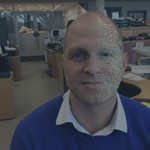Project Management & Business Analysis
A Project Manager is responsible for overall project management and planning activities for smaller projects and other business aspects of the requirements and analysis phase of larger projects.
Business analysts (BAs) help guide businesses in improving processes, products, services and software through data analysis. These roles are responsible for bridging the gap between IT and business to improve efficiency.
Additional responsibilities include:
- Perform requirements gathering and analysis
- Develop and implement test plans to ensure successful delivery of a project
- Accurately determine, assign, track and manage project task, activity, documentation and time information per internal standards

What qualifications could I need?
You’ll need to be good at solving problems and analysing data and have excellent communication skills. Many analysts have a technical background, such as in software development or programming. This is helpful, as new IT systems and digital technologies often form a major part of an organisation's development plans. An undergraduate degree in subjects such as computer science, business information systems, computing and systems development, and business management would be necessary as well as a Postgraduate qualification.
Employers may also look for recognised certification of your skills from a professional body, such as the International Institute of Business Analysis UK (IIBA) or The Chartered Institute for IT (BCS).
The Chartered Institute for IT offers a Foundation Certificate in business analysis for people new to the role, or those who may be thinking about working in this field and want to learn more.
You can go for an entry-level certification such as the Certified Associate in Project Management and then gain experience as a project coordinator or junior project manager to go for the Project Management Professional later.
What courses are available?
GTA University
The GTA University's vision is to work in partnership with individuals and companies, and through the provision of quality training and advice, contribute to the economic success of the Bailiwick.
Udemy: Project Management Courses
By connecting students all over the world to the best instructors, Udemy aims to help individuals reach their goals and pursue their dream careers.
Udemy: Business Analysis Courses
By connecting students all over the world to the best instructors, Udemy aims to help individuals reach their goals and pursue their dream careers.
How do I find out more?
You can read up to date news articles in the Skills and Education of our website.
Creative Industries UK
The UK is a global leader in the creative industries. This website features statistics, case studies, video interviews, news and opinion pieces. They comprise the principal bodies from fashion, music, design, publishing, technology, crafts, video games, arts & culture, architecture, advertising, TV & Film, as well as government and non-government bodies who support the UK creative industries.
Opportunities in Guernsey
Job Board
Work in Guernsey's technology sector, find jobs from Digital Greenhouse members.
Careers Guernsey
Careers Guernsey offers insight into multiple stages of your learning and experience, from year 9-10 work experience placements to university and career advice.
Jobs.gg
Jobs.gg is updated often with job positions in Guernsey





